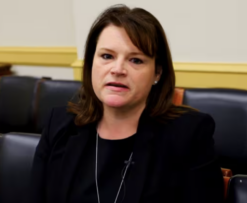
Cracking the Code on Surprise Medical Bills Pt 1: The No Surprises Act Explained
01.22.2024
What Are Surprise Medical Bills?
You’re probably asking yourself: what’s the surprise? You go to the doctor, or the ER, or the hospital, or any other medical facility, so you should expect to pay for those services. Right? Absolutely. So, why all the fuss about surprise medical bills?
When you go to a hospital, emergency or surgical facility in your insurance network, you naturally expect that everyone and every service within is also in-network. However, until January 2022, that was not always true and those expectations could leave you with a pretty hefty medical bill that you didn’t expect. Often, this amount was way more than what you’d pay for in-network services. There is your surprise.
This also happened to people who experienced a medical emergency. Just imagine, something unexpected happens to you or a loved one where your health or maybe even your lives are on the line. When help is on its way, is your first thought: “Is this hospital or emergency room or medevac in my insurance network?”
I certainly know I’d have a lot more pressing concerns at that moment.
Until 2022, these types of bills were startlingly common. Stats show that one in five emergency room visits resulted in a surprise medical bill. And as these bills were devastating individual families, they also contributed to rising health care premiums for everyone with commercial insurance. Now, thanks to a federal law called the No Surprises Act (NSA), millions of people are protected from these bills each month and the NSA has potential to help bring down rising health care costs. But there is still work left to do to inform everyone of their rights and to safeguard these consumer protections from detractors.
The Real Life Impact – The World Before the No Surprises Act
In 2003, Sonji Wilkes found herself experiencing this very thing. Sonji’s son, Thomas, was born with hemophilia and immediately began having health issues. While his parents checked ahead of time to make sure that the hospital itself was in-network, the NICU that monitored Thomas right after birth was not. The family received a surprise bill for $50,000 just as they were coming to terms with their son’s diagnosis. In her own words:

“When you are told that your baby is bleeding and his body lacks the ability to stop and that he needs immediate specialized treatment, your first reaction isn’t, ‘Gee, I wonder if that’s in-network;’ your first reaction is, ‘By all means, do whatever it takes to help my baby.’ I would have never thought to check if the NICU, just 50 or so steps from the room I gave birth in, was in-network. I think any reasonable person would assume it to be because it seems reckless and cruel to me that it would not be.”
Sonji and her husband made every effort to stick to their in-network options, trusting the information they were given, and like many of us would, they refused to pay this unfair and exorbitant bill. Because of this, they faced collections and enduring harm to their credit. Despite the eventual dismissal of the debt through a class action lawsuit, they still struggled with the lasting impact of damaged credit.
Dealing with these unfair and unforeseen extra expenses can place a huge financial strain on families who aren’t ready for such hardships.
So, How Do We Fix Surprise Medical Bills?
The good news is that protections now exist! January 1, 2024 marked the 2nd anniversary of The No Surprises Act protecting consumers. This law provides crucial protections for individuals covered by health insurance obtained through employment, the health insurance marketplace, or private plans, as well as those without insurance. Thanks to this landmark law, more than one million surprise medical bills per month are prevented from reaching people in America – bills which otherwise would result in devastating medical debt and force families to make difficult decisions between paying for medicine, groceries, and rent.
Attacks On The No Surprises Act.
Although the No Surprises Act is in place, it’s encountering hurdles. Corporate provider groups are suing to weaken key parts of the law, which could reduce its ability to protect people from unexpected health care expenses and rising premiums. The Biden Administration has been pushing back against these lawsuits, appealing decisions like ‘TMA III,’ but organizations like the Texas Medical Association will do anything in their power to keep padding their members’ pockets.
As consumer advocates, we have an important role to play in lifting up the NSA’s critical consumer protections – both so that families across America are aware of the protections and rights they are entitled to and so detractors like the TMA don’t succeed in undermining the law’s progress.
For more information on surprise medical bills and the No Surprises Act, check out the No Surprises Campaign. Stay tuned as we break down the tactics used by provider associations to weaken and ultimately destroy the No Surprises Act in Cracking the Code on Surprise Medical Bills Pt 2: Death by 1000 Cuts.




